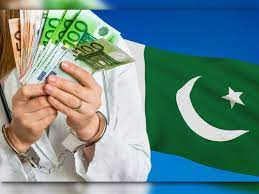Corruption in Pakistan easier then you think (آسان کرپشن)
Pakistan is a country that has struggled with corruption for
many years. Despite efforts to combat corruption, it remains a pervasive issue
in the country. Corruption is a complex problem that affects every aspect of
society, from politics and business to education and healthcare.
One of
the main drivers of corruption in Pakistan is the lack of transparency and
accountability. This is evident in the way government contracts are awarded and
public funds are spent. There are also issues with the rule of law, as many
corrupt officials and politicians are able to avoid prosecution or receive
lenient sentences.
The
consequences of corruption in Pakistan are far-reaching. It undermines economic
growth by discouraging foreign investment and reducing confidence in the
government's ability to manage the country's finances. It also exacerbates
inequality, as the wealthy and powerful are able to exploit their positions for
personal gain at the expense of the less privileged.
One of
the most high-profile corruption cases in recent years was the Panama Papers
scandal, which exposed the offshore financial dealings of several high-profile
Pakistani politicians, including former Prime Minister Nawaz Sharif. The
scandal led to widespread protests and calls for accountability, but there has
been little progress in bringing those responsible to justice.
Efforts
to combat corruption in Pakistan have been hindered by political instability
and a lack of political will. The country has seen numerous military coups and
political crises over the years, which have made it difficult to implement
long-term reforms. There have also been concerns about the independence of the
judiciary and the effectiveness of anti-corruption agencies.
Despite
these challenges, there have been some positive developments in recent years.
The government has established a National Accountability Bureau (NAB) to
investigate and prosecute corruption cases, and there have been some
high-profile arrests and convictions. However, there is still much work to be
done to address the root causes of corruption and create a culture of
transparency and accountability in Pakistan.
Conclusion
Corruption
is a significant challenge for Pakistan, with far-reaching consequences for the
country's economic, social, and political development. Addressing this issue
will require a sustained effort by the government, civil society, and the
private sector, as well as a commitment to transparency, accountability, and
the rule of law. Only by tackling corruption can Pakistan achieve its full
potential and create a brighter future for its citizens.



Comments
Post a Comment